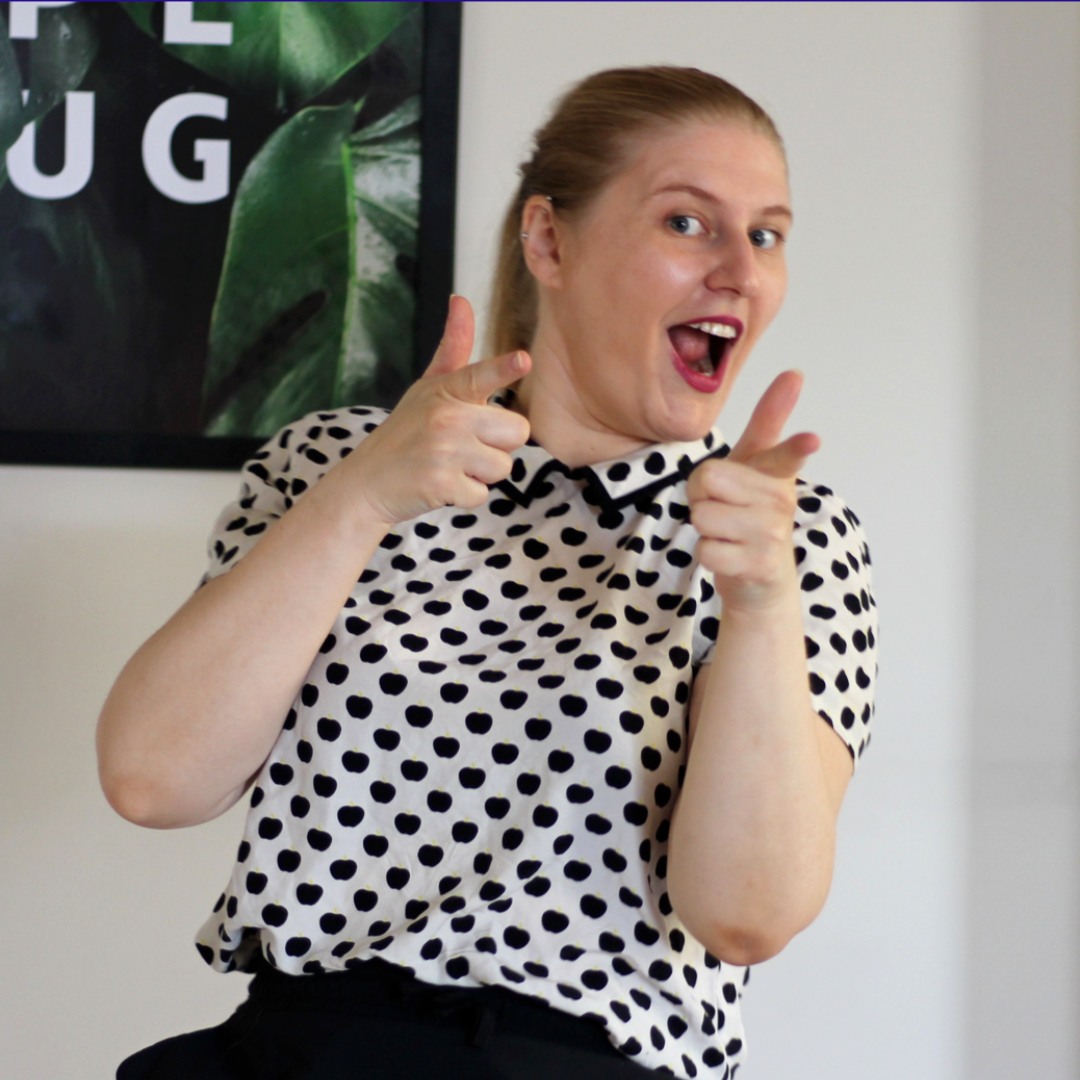Hit Enter to Search or X to close
How to improve EAT on your website
E-A-T is an SEO acronym for "Expertise, Authoritativeness, Trustworthiness."
We talk about expertise, authority and credibility. These criteria determine the relevance of your content and your entire website. E-A-T is in the evaluation guide that the human Quality Raters of Google use to determine the quality of a site.
- Quality Raters evaluate your site in live.
- The feedback is taken into account and used to improve the information provided to the algorithms.
- The algorithms identify signals that correlate with the E-A-T criteria for humans.

To rank well in the results, you need to know what you're talking about. Google believes you should be an expert in your field. Expert content is relevant and addresses a topic in a clear and comprehensive manner.
If you have a site that is medical, in finance, or otherwise addresses legal topics, veracity (citing relevant sources), freshness (last updated or published date), and relevance are essential.
This is valid for other types of sites but the standards are less strict than for the 3 domains mentioned.
Remember: the author must be an expert in his/her field.
The List of Things Google Checks to Evaluate Content Quality
Content Quality
- Does the content provide original information, reports, research or analysis? Make sure you cite relevant sources to back up your statements.
- Does the content provide a substantial, complete or exhaustive description of the topic?
- Does the content provide insightful analysis or interesting information that is not obvious?
- If the content draws on other sources, does it avoid simply copying or rewriting those sources and instead bring substantial added value and originality?
- Does the article and / or page title provide a descriptive and useful summary of the content? In short: does the reader clearly know what to expect?
- Does the article and / or page title avoid being exaggerated or offensive in nature? In short: is this clickbait content?
- Is this the type of page you would like to bookmark, share with a friend, or recommend?
- Would you expect to see or refer to this content in a magazine, encyclopedia, or printed book? In short: can it end up on Wikipedia as a quote?
Expertise
- Does the content present information in a way that makes you trust it, for example by clearly indicating the sources, proving the expertise involved, giving information about the author or the site that publishes, for example through links to the author's page or the About site page?
- If you were to research the site that produces the content, would you feel that it is trustworthy or widely recognized as an authority on the matter?
- Is this content written by an expert or an enthusiast who obviously knows the subject well?
- Is the content free from easily verifiable factual errors?
- Would you be willing to trust this content for matters relating to your money or your life? In short: it refers to the concept of YMYL = your money or your life. Google is stricter with content that targets the health, well-being, and physical and financial security of people.
Presentation and production of content
- Is the content free from spelling or styling issues?
- Was the content produced well, or does it seem sloppy or hastily produced?
- Is the content mass produced by or outsourced to a large number of creators, or spread over a large network of sites, so that individual pages or sites do not receive as much attention or care?
- Does the content have an excessive amount of ads that distract or interfere with the main content?
- Does content display correctly on mobile devices when viewed on them?
Comparison to Other Results
- Does the content provide substantial value compared to other pages in the search results?
- Does the content appear to serve the actual interests of site visitors or does it appear to be made by someone trying to guess what might rank well in the search engines?
How to confirm your authority in the field
We are talking about popularity. Are you known on the internet? Your popularity can be developed through conferences, videos, articles or other channels. Your site must receive links from authority sites, influential in your field. Links are a way for Google to get to know your reputation as a brand.
How to establish credibility in the eyes of Google

This criteria aims at security and trust. Here are the elements taken into account:
- HTTPS navigation
- Secure payment method
- Legal notice
- Google My Business page
- Links from authority sites
- Presence on Wikipedia, etc.
Chrome reports all HTTP pages as "not secure", so any site without an SSL certificate has little chance of getting a good EAT score. There is no official EAT score provided by Google to website owners.
- Google relies on us to make the internet more pleasant to navigate. We are supposed to assist the search engine in raising the bar.
- If you wouldn't trust a website, neither should a search engine (and that's often what happens)
- E-A-T guidelines can help you improve your overall web marketing, not just your SEO.
You can also read the official Google document online.

According to Google, pages or topics can be considered YMYL (your money, your life) if they "can potentially impact a person's future happiness, health, financial stability, or safety." Many sites fall into this category: medical, legal, financial, news and political sites, etc.
Your Money Your Life pages are pages that impact users' future happiness, health, financial stability or safety. This is how Google defines "critical" pages that are reviewed under stricter criteria. This is something very important to Google testers. This also overlaps with the author's biography. If the level of expertise of the content author is not clearly communicated, there is going to be a problem for pages of a "medical" nature, "financial" or any other topics in the YMYL category.
- Improve your online reputation and reviews on third party online sources.
- Don't put too many ads on the site.
- Clearly communicate your brand, your authors and why you should be trusted.
- Cite credible sources and get links from credible sources too.
- Make sure your YMYL content is supported by scientific citations.
It takes time and skilled resources to produce quality content. However, there are some techniques to show Google your legitimacy without spending thousands.
Include the names of the authors for each editorial content
It is very important for Google to know who is in charge of a website. For e-commerce sites, support and contact information must be easy to find. For blog posts, you need information about the author.

Here is what is required of an author
- Recognized author
- Numerous citations
- Media coverage of the person or book
- Robust expert content
- Quality reviews
The Quality Raters guide leaves room for everyone
"For some topics, the most expert sources of information are ordinary people who share their life experiences on personal blogs, forums, journals, discussions, etc."
Reputation as Google sees it
For content creators, biographical information and other sources that are not created by the person or organization are needed. This is outlined in section 2.6.4 of the guide. The biographies in the author blocks and the about page should be enhanced to meet this requirement.
L’article est bien recherché avec des référence appropriées citées - QRG Section 10.1

Google asks its Quality Raters to look at online reputation information rather than trusting brand content exclusively. It is essential to ensure that you maintain a good brand image. Section 2.6.4 of Google's E-A-T guide outlines how to find out about an organization's reputation:
- Check out the Amazon reviews
- BBB review: please consider very low ratings on the BBB site as evidence of a negative reputation. Section 2.6.4
- Yelp Reviews
- Google My Business
- Shopping on Google
- Foursquare
- Wikipedia: see if there is a Wikipedia article or an article from a well-known news site.
Therefore, you need to perform a reputation analysis to understand what real users as well as experts think about this website. Section 2.6.1 involves searching your brand in Google.

We advise you to use this approach to find out what is being said about you:
- Site name + reviews
- Site name + reviews
- Site name -site:sitename.com
Use your community members as contributors
For some niche topics, it is sometimes very difficult to find a qualified author, but this is not a necessity. The community can indeed play an important role by commenting and encouraging discussion within the page itself. The content will then be considerably enriched.

If the pages don't have useful and relevant content expected in a recipe page, it's going to be problematic. Google also looks to see if reviews and comments are present as both of these elements are trustworthy to them.
Section 6.5 makes it clear that web content should be rated as "LOW" in quality if the creator of the content or the website publishing it has a slightly negative reputation.
“High quality UGC is GREAT for your site. Crack down on low quality UGC instead of getting rid of it altogether” #defcon1 - Gary Illyes
Google loves user-generated content: "Do you know quality comments can be a signal of a healthy website?" - Gary Illyes. Reviews, comments, forum topics are very well seen by Google when they are relevant.
Beware of content considered spammy
Google will consider a forum "spammy" if the content is not relevant. If you have comments that advertise Viagra or just want to promote a website, this can be held against you. If your forum turns into a torrent movie download den, this will certainly be held against you.
All pages on the web are created with a purpose in mind. Sites that are put up with the purpose of harming users, misleading them or making money in a dishonest way will be rated poorly by Google. Sometimes, there are false positives. It is therefore necessary to know how to show a white coat with an ultra relevant content.
Google expects ads to be seen on a site. However, if pages have so many ads that they distract or interrupt the user's browsing experience on the page, the page will be given a "low-quality rating."
Each page belongs to a website. Google must be able to establish quickly and clearly who, which company, which NPO, etc. is responsible for the website.
"90% of high-performing sites in the analysis cited in the sources have robust "about" pages.

"You can view the rater guidelines as where we want the search algorithm to go. They don't tell you how the algorithm is ranking results, but they fundamentally show what the algorithm should do." - Ben Gomes, VP Search, Assistant & News at Google.
Ultimately, the E-A-T guidelines discussed here are an indication of where Google wants to go algorithmically. For now, the search engine needs the help of humans to control the quality of content and fight misinformation online. So, you need to consider all aspects regarding expertise, reputation and trust to ensure you produce content that will rank well in the results pages.
Sources :
Want more? Here are other articles for you







.jpeg)
.jpeg)